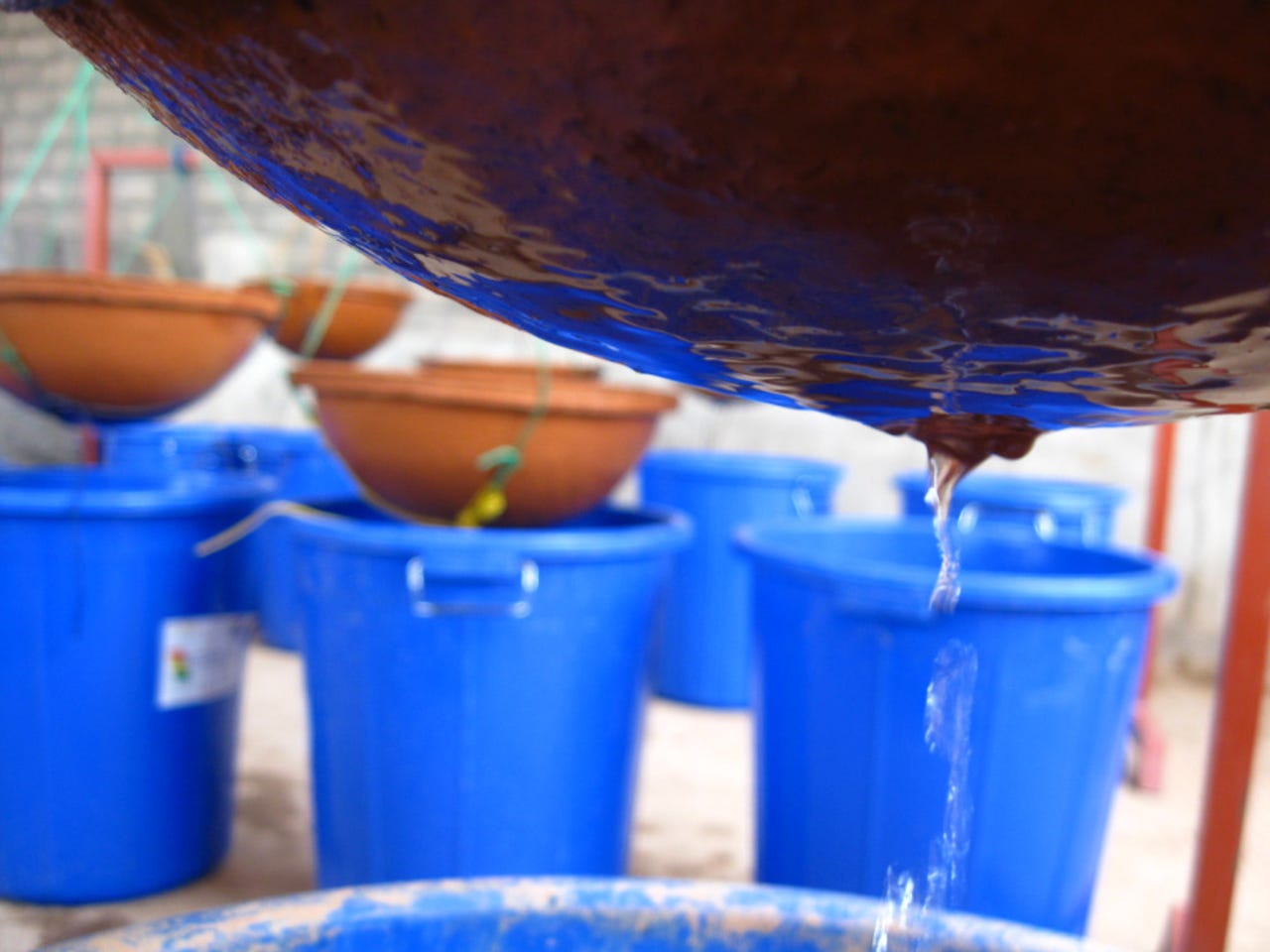Innovation
Ghana's $6 locally-sourced water filter
MIT researchers have spent nearly a decade trying to bring their flowerpot-like filter to the most impoverished northern region. Now, it’s finally starting to make a difference.


Fernando Mazariengas of Guatemala invented a clay-pot water filtration system that can be inexpensively produced in factories using locally sourced material. The filter has since been improved and widely distributed by MIT’s Susan Murcott and others. Factories built at 52 locations in 31 countries are helping to curb disease, while also bringing jobs.
About nine years ago, Murcott’s team started disseminating the ceramic filter in northern Ghana -- where over a million people lack access to a reliable supply of clean drinking water. It’s now starting to make a difference.
Murcott cofounded a nonprofit company in 2005 called Pure Home Water to sell filters produced in Accra, Ghana’s capital. But the rough 12-hour truck ride to deliver them to where they’re needed most caused a lot of breakage. So in 2011, a factory was built in the impoverished, rural northern region. They reached full production by 2012 -- providing sustainable, safe drinking water to more than 100,000 people.
- The flowerpot-like filters are made with a mixture of local clays and combustible material, such as rice husks or sawdust.
- The combustible material burns off when the clay is fired, leaving a network of tiny pores that filter out sediment, bacteria, and parasites, while allowing water to trickle through.
- The filter is further treated by applying colloidal silver nanoparticles that have antimicrobial properties.
- The pot is set into the top of a plastic barrel, which is fitted with a spigot at the bottom to dispense the water.
- One filter can produce enough clean water daily to serve the needs of a large family.
- They’ve been shown to reduce microbial contamination in water by 98 percent, leading to a more than two-thirds decrease in diarrheal disease among families using them.
The factory churns out hundreds of filters a month, and while they cost $10 to make, they’re sold for $6 to the rural poor. Though that’s still a steep price in a place where most people earn less than $1 a day.
Murcott and colleagues recently received grants from the government of Dubai, which will allow them to expand production and distribution in Ghana, Guatemala, and Nepal.
[Via MIT News Office]
Image: http://purehomewater.org
This post was originally published on Smartplanet.com